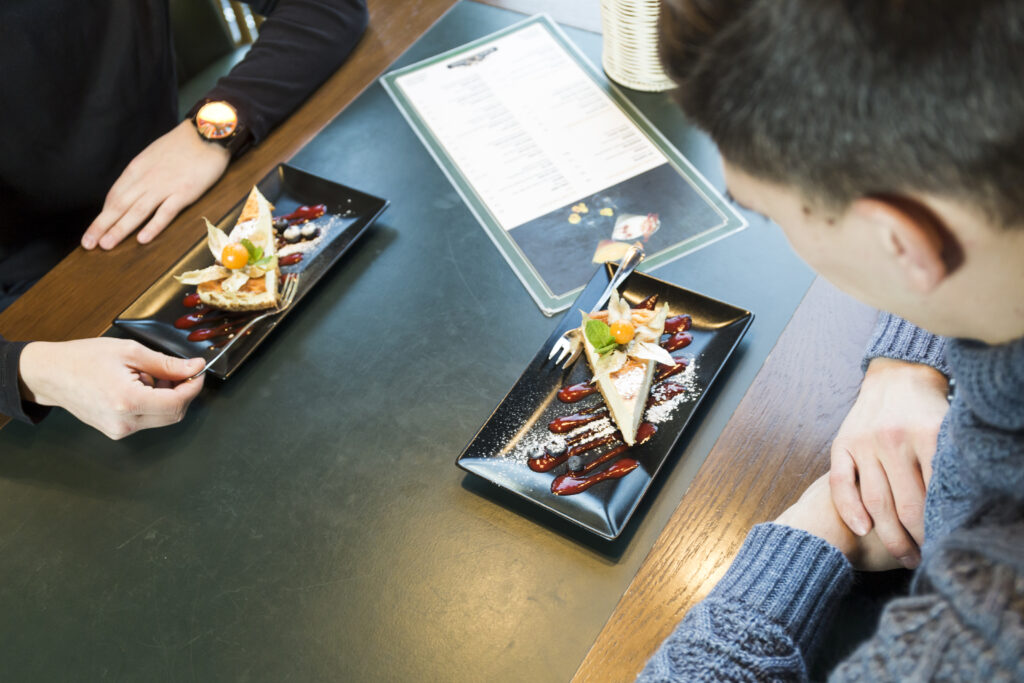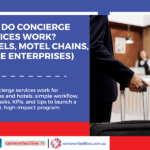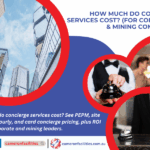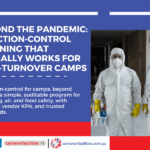
Whether you are planning a board meeting, a client launch, a training day, or running a remote mining camp, one thing never changes: people remember the food.
They may not recall the slide from your third speaker, but they will remember if the coffee ran out, if lunch was late, or if there was nothing they could eat.
At the same time, food and beverage (F&B) is also one of the biggest sources of stress for organizers. Studies on event planning stress show that planners work long hours and juggle many moving parts at once. For many teams, catering sits right in the middle of that pressure.
As one corporate event lead put it:
“We can handle speakers and slides. It’s the food that keeps me awake the night before an event.”
In this article, we will look at how professional catering services make events easier to organize for corporate businesses, mining camps, and small business owners. We will also show why catering is not just a cost, but a strategic lever for experience, safety, and even productivity.
Throughout the article, you will see contextual links you can use as references, such as event planning stress statistics, and food and beverage impact on event satisfaction.
The Hidden Weight of Food & Beverage in Event Planning
Food and drink touch almost every part of an event.
They affect the schedule, the energy in the room, how long people stay, and how they talk about the experience later. When food goes well, people barely notice. When it goes wrong, it is all they talk about.
Industry data on event planning industry statistics shows that a large share of the budget and planning time goes into venue and catering. That means F&B is not a side detail. It is one of the main pillars of the event.
For a corporate event team, that weight often lands on a handful of people who already have full-time jobs. For a small business owner, it may fall on the owner and one or two staff members who also need to serve customers and close deals.
As one small business owner said after trying to DIY catering for a client night:
“I spent more time worrying about canapés than talking to my clients. That’s when I knew I needed help.”
When you see how central food is, it becomes clear why catering has such a big impact on how easy (or hard) an event is to run.
How Catering Services Take Complexity Off Your Plate
Professional catering companies do much more than cook and serve food. They bring systems, processes, and people that remove a big chunk of the organizer’s workload.
Here are some of the main ways they help.
1. Menu planning and dietary management
Modern events have a wide mix of needs: allergies, religious requirements, and lifestyle choices like vegan, vegetarian, and gluten-free.
A good caterer has tested menus and clear options for these needs. They can suggest dishes that work well for large groups, stay fresh on a buffet, or travel safely to a remote site.
Instead of spending hours trying to build a menu from scratch, you can review options, make a few changes, and be done.
“Once our caterer gave us a standard conference menu with clear dairy-free and gluten-free options, our planning meetings went from chaos to quick decisions.”
2. Staffing and service flow
Catering is not only about food. It is also about how that food moves through the event.
A professional team knows how to:
- Staff buffets and bars so lines move fast.
- Time for coffee breaks, so people are served quickly.
- Handle peak moments, like lunch at a full-day conference or shift changes in a camp.
This means you are not pulling staff from other tasks to pour drinks or clear plates.
3. Food safety and compliance
Food safety is a serious risk area for any organization.
Professional caterers follow health regulations and best practices. They manage temperature control, storage, and safe handling. They train staff on hygiene and cross-contamination.
This protects guests and employees. It also protects your brand. A single food safety incident can damage trust built over many years.
4. Feedback and continuous improvement
Many catering teams now use simple surveys and feedback tools to measure how people feel about the food and service.
You can plug quick questions about F&B into your event survey and share the results with your caterer. This ties into resources like a catering satisfaction survey template or food and beverage services feedback.
Over time, this turns catering into a feedback loop. Each event gets better as you learn what people enjoy and what needs to change.
“The first time we asked about food in our post-event survey, the responses were eye-opening. Our caterer used the feedback to tweak the menu for the next event, and satisfaction scores jumped.”
Outsourcing Catering So Your Team Can Focus on What Matters
In business, it is common to talk about core and non-core activities.
Core activities are the things your organization is known for. Non-core activities are important, but they are not your main value to the market.
Research on strategic outsourcing and organizational performance shows that when companies outsource non-core work to specialists, they often see:
- Better quality and consistency.
- Lower risk and clearer contracts.
- More time and energy for core work.
Catering fits this pattern.
For a corporate team, your core job is to deliver the right message, build relationships, and create a strong brand experience. For a small business owner, your core job is to serve clients and grow the business.
Running a mini-restaurant for one day is not your core work.
“We’re not in the business of running kitchens. We’re in the business of running events. The caterer helps us remember that.”
When you hand food and beverage to a trusted partner, your team can:
- Spend more time on content and speakers.
- Talk with guests instead of refilling coffee.
- Watch the mood in the room and make adjustments.
In short, outsourcing catering helps you protect the parts of the event that only you can own.
When Catering Becomes Mission-Critical: Mining Camps and Remote Sites
If you want to see how powerful catering can be, look at a remote mining camp.
Workers live and work far from home. They face long shifts, tough conditions, and social isolation. In this setting, food is not just a nice extra. It is part of how people cope and perform.
Providers of mining camp services and remote camp catering make this clear in their own materials. They link quality meals, clean accommodation, and recreation to:
- Worker comfort and morale.
- Mental health and resilience.
- Productivity and safety on site.
“In camp, a good meal isn’t a luxury. It’s the difference between dragging through a shift and having the energy to do the job safely.”
For camp operators, catering is part of the operating system of the site. It sits alongside maintenance, transport, and safety.
Good catering plans:
- Match menus to heavy physical work.
- Provide variety so meals don’t feel the same every day.
- Align meal times with shift patterns.
These same ideas apply to corporate off-sites and training days, just in a softer way. When people are well fed at the right times, they focus better, engage more, and leave with a stronger impression of the event.
Resources on camp workforce well-being show how small daily comforts, like hot meals and clean spaces, support long-term performance.
Measuring the ROI of Professional Catering
For many leaders, catering still feels like a simple cost item.
But once you start tracking a few key metrics, it becomes clear that good food and service pay off.
Here are some ways to measure return on investment (ROI) from catering.
1. Attendee or worker satisfaction
Use your event or camp survey to ask simple, clear questions about food and service. Link them to wider feedback on the experience.
Resources on food and beverage impact on event satisfaction and event feedback surveys for catering show that F&B scores often move in line with overall event satisfaction.
If food scores go up, you often see total satisfaction rise too.
2. Repeat attendance and referrals
Track whether people who rate food and service highly are more likely to:
- Return to your next event.
- Recommend your event to others.
- Stay longer at networking sessions.
These behaviors turn into real revenue over time.
3. Time saved by your team
Estimate how many hours your internal team used to spend on planning menus, booking rentals, and managing service.
Then compare that to the time they spend now with a catering partner. Even a simple estimate shows how many hours you have freed up for higher-value work.
4. Workplace performance in camps
For mining camps and remote operations, you can also look at:
- Retention rates.
- Sick days and incident rates.
- Feedback on energy levels and mood.
While food is only one factor, well-planned catering is a key part of a wider system that keeps people safe and productive.
“Once we started measuring the food experience, it became obvious that catering wasn’t just a line item. It was one of our strongest levers for engagement.”
How to Choose the Right Catering Partner for Your Event or Camp
Not all caterers are the same. The right partner for a mining camp will look very different from the right partner for a small agency’s client evening.
Here are some simple checks to guide your choice.
1. Look for experience with your type of event or site
Ask for examples similar to your needs:
- Corporate conferences or town halls.
- Board meetings and workshops.
- Small business client nights or training days.
- Remote camps or industrial sites.
If they understand your world, they will ask better questions and spot risks faster.
2. Check operational capabilities
For events, ask about:
- The maximum headcount they can serve.
- How they handle last-minute changes.
- What equipment do they provide?
For camps, ask about:
- Logistics for remote locations.
- Supply chains for fresh food.
- Backup plans when transport is delayed.
3. Review menu flexibility and dietary coverage
Look for clear options for common dietary needs and a willingness to adapt menus.
You should not have to reinvent the wheel. The best partners give you ready-made options with room for simple tweaks.
4. Ask about feedback and reporting
Ask how they collect and use feedback. Do they help you design questions for your event survey? Can they provide simple reports after each event or quarter?
This shows whether they see themselves as a true partner.
5. Check cultural and brand fit
Catering staff are part of the face of your event.
Do they match the tone you want, relaxed and friendly, formal and polished, or somewhere in between? Do they understand your safety rules or camp culture?
“We look at our caterers as partners, not vendors. If they make us look good, everyone wins.”
Cameron Facilities offers reliable and high-quality catering services for corporate, mining camps, and commercial businesses. Contact us today to know more about how we can be your partner in your business events.
Conclusion: How Catering Services Really Help You Organize an Event
So, how do catering services help in organizing an event?
They do far more than deliver food. They:
- Take a large, complex task off your plate.
- Reduce stress for your team.
- Protect and improve the experience for guests and workers.
- Free you to focus on content, relationships, and business goals.
- In demanding settings like mining camps, support comfort, safety, and productivity.
In other words, good catering is both an operational tool and a strategic asset.
Whether you are planning a one-day workshop or running a long-term camp, choosing the right catering partner is one of the simplest ways to turn event chaos into a smooth, well-organized experience.







